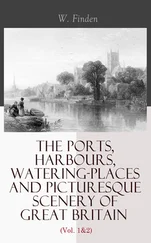The Wiltshire police, meanwhile, were campaigning to discredit Whicher. His theory about the murderer was opposed to theirs, and he may have made it clear that he thought the investigation had been bungled in the fortnight before he was summoned from London. His manner - at best quiet and self-sufficient, at worst dismissive - may have riled them further. Things were only made worse by the arrival of his talented young colleague Dolly Williamson.
On Wednesday, 25 July, Superintendent Wolfe and Captain Meredith went to Constance's school in Beckington and interviewed the Misses Williams and Scott, as Whicher had done a week earlier. They then briefed the Bath Chronicle about their visit. The teachers 'spoke in the highest terms of Constance, saying that she was a well-conducted pupil in every respect . . . and that so assiduous was she to her studies, that she became a successful competitor at the half-yearly examination, and carried off the second prize. This fact, we certainly think, precludes the possibility of her having brooded over this fearful deed, as has been hinted at in some quarters, prior to coming home for the holidays.'
Wolfe told the Bath Chronicle and the Trowbridge and North Wilts Advertiser that he had traced Constance's life since childhood and discovered no evidence of insanity, 'her infancy having been most rational'. 'The unfounded rumour, which has been so industriously circulated, to the effect that the deceased child entertained a strong antipathy to Miss Constance, is as false as it is wicked,' said the Chronicle.
The Frome Times played down the importance of William and Constance's flight to Bath, and of the madness in their mother's line. Instead, it repeated information from 'an intimate friend of the family' that Constance and Saville were on very good terms, 'as may be proved by the fact that on the very day before his sad death he presented her with a bead ring, which he had made for her'. The Bristol Post repeated the theory that the true murderer was framing the 'frolicsome, mischievous' Constance.
Several newspapers voiced scepticism about the case against Constance. 'The new episode in the history of the case we regard as tentative only,' said the Bath Chronicle on Thursday, 'and upon a consideration of it, we are by no means inclined to declare the enquiry materially advanced'. There was 'not a tittle' of new evidence. The Manchester Examiner was similarly unconvinced: 'This step savours of a disposition on the part of a London detective to incriminate somebody as a salve to public opinion'.
On Wednesday a Mr Knight Watson of Victoria Street, a new thoroughfare that cut through Pimlico, called at Scotland Yard and asked to speak to a detective. He knew a woman called Harriet, he said, who had previously worked for the Kents and who might be able to provide Whicher with useful information about the family. Detective-Sergeant Richard Tanner volunteered to interview the woman, now a housemaid in Gloucester Terrace, near Paddington. Dick Tanner had worked regularly with Whicher since joining the division in 1857. Commissioner Mayne gave him the go-ahead.
The next day Tanner wrote a report for Whicher on his meeting with Harriet Gollop. She had worked for the Kents as housemaid and parlourmaid for four months in 1850, he said, when they lived in Walton-in-Gordano, Somersetshire.
At that time the first 'Mrs Kent' was alive but during her service there 'Mrs Kent' never slept with 'Mr Kent' she always occupied separate sleeping apartments, and during the whole of her (Harriet Gollop's) time there, 'Mrs Kent' appeared very unhappy and miserable. At that time a 'Miss Pratt' was the governess in the family and her bedroom was close to that of 'Mr Kent' and also the servants in the establishment believed that an improper intimacy was going on between her and 'Mr Kent' and the wife thought so also. The Miss Pratt alluded to is now 'Mrs Kent' the mother of the child that has been murdered.
Gollop claimed that Miss Pratt had 'the entire control of all the children and that "Mr Kent" gave directions to all the servants to consider "Miss Pratt" as their mistress'. The former housemaid had evidently disliked this arrangement. ' "Harriet Gollop" says that the first "Mrs Kent" was a very ladylike person and she considered her perfectly sane.'
Whicher saw the letter on Friday morning. Gollop's evidence gave substance to the rumour that Samuel Kent and Mary Pratt were lovers while the first Mrs Kent was alive, and it painted a dark picture of life in the Kent house-hold. But Whicher could make no use of it. The maid's recollections weakened the case against Constance - if the first Mrs Kent was sane, her daughter was less likely to be mad - and they might lend credence to the idea that Samuel, as a confirmed adulterer, had killed his son after being surprised in bed with Gough.
In the mid-Victorian home, servants were often feared as outsiders who might be spies or seducers, even aggressors. The Kent house-hold, with its high turnover of domestic staff, had seen plenty of dangerous servants. There were Emma Sparks and Harriet Gollop, who acted as informants on the family's sex lives and peccadilloes. There were two that Samuel Kent summoned up as possible suspects: a cook whom he had got imprisoned, and a nursemaid he had sacked without pay because she had been in the habit of pinching the children. Both, it emerged, had been at least twenty miles from Road on the night of the murder.
Samuel claimed that a servant had left Road Hill House early in 1860 swearing revenge on Mrs Kent and her 'horrid children', particularly Saville. The boy had probably told on her: perhaps she was the pincher, or perhaps she was the nursemaid whom Samuel had banned from consorting with her sweetheart in the cottages next to the house. 'She had left in a dreadful rage,' said Samuel. 'She had been excessively insolent.' And deep in the family there was the former servant who had transformed herself into the mistress of the house, the governess who had ensnared the master, coaxed him into betraying his first wife and neglecting his first children.
Female servants could corrupt children as well as their parents. In Governess Life: Its Trials, Duties, and Encouragements, a manual of 1849, Mary Maurice warned that 'frightful instances have been discovered in which she, to whom the care of the young has been entrusted, instead of guarding their minds in innocence and purity, has become their corrupter - she has been the first to lead and to initiate into sin, to suggest and carry on intrigues, and finally to be the instrument of destroying the peace of families'. Forbes Benignus Winslow, an eminent alienist, in 1860 described such women as 'sources of moral contamination and mental deterioration from which the most vigilant parents are not always able to guard their children'.
The prevailing theory about Saville's murder also cast a servant as the serpent in the house. Elizabeth Gough, by this account, lured the father into a betrayal so complete that it ended in his killing his son. In the newspapers, the gap-toothed Gough became an object of sexual fantasy. The reporter for the Western Daily Press found her appearance 'decidedly pleasing, and altogether superior to her station in life'. The Sherborne Journal described her as an 'exceedingly good-looking' young woman, who at night 'lay . . . on a French bedstead without curtains, near the door of the bedroom'. She was dangerously embedded in the family, a step away from the master's quarters.
The detective was another member of the working classes whose pernicious imaginings could sully a middle-class home. Usually, as with the case of Sarah Drake and her dead boy, his investigations were confined to the servants' quarters. Occasionally, as at Road, he ventured upstairs. An article in House-hold Words in 1859 attributed the weaknesses in the police force to the origins of its officers: 'It is never a wise or safe proceeding to put arbitrary authority or power in the hands of the lower-classes.'
Читать дальше












